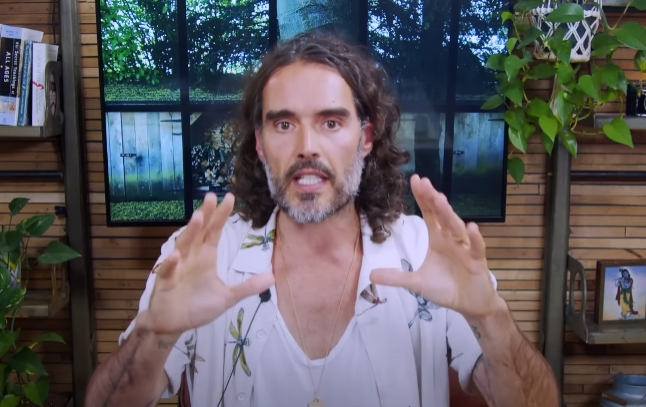The Charity Commission’s social media guidance released this week says charity leaders and staff have a right to express their opinions via their personal social media accounts.
Earlier this year concerns had been raised over charity leaders’ freedom of speech after the regulator launched draft guidance on charities’ use of social media.
This had warned trustees, staff and volunteers that “sometimes there are risks that an individual’s posts are interpreted as reflecting those of a charity, including personal accounts “that could reasonably be linked to the person’s role at the charity”,
But the final guidance released this week instead confirms that “trustees, charity employees and any other individuals have the right to exercise their freedom of expression within the law in their communications, including when using social media” adding “this includes personally supporting a particular political party or (during an election) a particular candidate, something a charity cannot do”.
It still advises trustees that “they should be aware of the potential for content posted” in a personal capacity “being associated with the charity”.
But adds there is “no expectation that trustees monitor personal social media accounts” and advises charity workers, leaders and volunteers not to disclose their place of work or charity role on their personal account.
The final guidance also says charities can engage on emotive issues through their social media posts “if this is a way of achieving its charitable purpose and is in the charity’s best interests”.
NCVO chief executive Sarah Vibert says she is “grateful” the regulator has listened to concerns raised around the draft guidance.
“We welcome this updated guidance from the Charity Commission, which will help charities to set appropriate policies for their social media presence,” she said.
“These latest changes help ensure charities can effectively and efficiently maximise the opportunities that social media bring to ensure they are able to meet their charitable objectives.
“We are grateful to the Commission for listening to concerns and feedback from NCVO members, and ensuring they were addressed in the latest revised guidance."
She added: “This latest update to the guidance clearly reiterates the legitimate role of charities to campaign if it is in the interests of meeting their charitable objectives. We hope the new guidance will give trustees and sector leaders the confidence, and clarity on the parameters, they need to use social media well in their vital work.
The guidance also says that charities can use social media to engage in campaigning and political activity but stresses that extra care needs to be taken around elections.
It also stresses that fundraising on social media “has the potential to reach large audience and can attract wider commentary".
“This can amplify any criticism a fundraising campaign might attract, and you should take this into account when planning the content of any online fundraising appeal and what social media platforms you use,” adds the guidance.
Charity communications body CharityComms said it is pleased the regulator has “listened to the concerns raised by the sector”.
“We welcome the reinforcement of charities’ right to campaign and to be bold and creative in their communications,” it said.
“Staff and trustees should have a shared understanding of how to use social media as a powerful tool for change, ensuring that communicators have the confidence and support they need to act.
“We will continue to work in partnership with other infrastructure bodies to understand what the updated guidance means for charities and ensure our members are equipped and supported.”
Consultation
During the three-month consultation around the guidance the Commission received just under 400 responses. The regulator said “some felt it could be clearer to explain what is and is not expected of trustees” adding that it has “made a number of changes to clarify the Commission’s regulatory expectations in the light of the feedback”.
Charity Commission communications and policy director Paul Latham said: “There are many benefits to using social media, which can be an effective tool for campaigning, communicating with the public and reaching new and existing supporters. However, trustees need to be alive to the risks it can generate, including to a charity’s reputation.
“We have published this guidance because we want trustees to think carefully about what they want to achieve when using social media and then apply our guidance to help ensure their charity is protected.”
He added: “We know trustees are busy and don’t expect them to be social media experts. Our guidance is also clear that their oversight need only be proportionate. However, it is the duty of trustees to act responsibly, in their charity’s best interests, and in line with the law. This includes when posting online.
“Our guidance will help charities to navigate their use of social media with greater confidence and will support the Commission to regulate this high profile and fast paced area in a fair and balanced way.”
RSPB compliance case opened
Meanwhile, the Charity Commission has confirmed it has opened a regulatory compliance case over the RSPB's social media posts.
This relates to a thread of social media posts by the charity criticising the government’s environmental policy and branding Prime Minister Rishi Sunak and government ministers “liars” on their environmental pledges.
RSPB chief executive Beccy Speight later apologised saying the “framing” of the post was “incorrect and inappropriate”.
LIARS!@RishiSunak @michaelgove @theresecoffey you said you wouldn’t weaken environmental protections.
— RSPB England 🌍 (@RSPBEngland) August 30, 2023
And yet that’s just what you are doing.
You lie, and you lie, and you lie again.
And we’ve had enough. 🧵 pic.twitter.com/ZHlRmd5po3
This case has been opened "to fully assess this information and to determine our next steps", said a Charity Commission spokesperson.
“This was a serious mistake and we continue to engage the charity on this matter.
"The trustees have shared information on the steps they are taking to review how the incident happened, and to ensure such mistakes do not occur in future."













Recent Stories